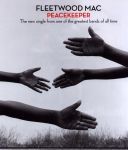|
August 2001
Vivendi
Universal acquires MP3.com.
September 24, 2001
Napster
agrees to settle the class action lawsuit for copyright infringement by
the National Music Publishers Association for $26 million.
October 2001
EMI agrees
to license its catalog of music to Sony Music and Vivendi Universal’s
Pressplay.
October 4, 2001


The RIAA
sues the companies behind the Grokster and Morpheus file-swapping
services.
The company
behind KaZaA is added later.
November 2001
Vivendi
Universal licenses its catalog to the subscription service FullAudio.

December 11, 2001
The
MusicNet digital music subscription service (owned by BMG, EMI and Warner
Music) launches, with minimal notice by the greater music-swapping public.

December 19, 2001
The
Pressplay digital music subscription service (owned by Sony and Vivendi
Universal) launches, with minimal notice by the greater music-swapping
public.
2002
January 10, 2002
The Napster
digital music subscription service launches, with minimal notice by the
greater music-swapping public.
January 23, 2002
U.S.
District Judge Marilyn Hall Patel puts a hold on the lawsuit against
Napster by the RIAA until February 17, as the two sides discuss a possible
settlement.
March 2002
9th Circuit
Court of Appeals confirms that Napster must remain offline. The company
later announces that it will postpone the launch of its subscription-based
service.

April 2002
The
FullAudio legal digital music service is introduced.
May 2002
File-sharing site Audiogalaxy is sued by the RIAA.
May 14, 2002
Founder
Shawn Fanning and several other executives including CEO Konrad Hilbers
resign from Napster, in reaction to a recent rejection by Napster's Board
of Directors of an offer from Bertelsmann AG to purchase the company.
Napster is near bankruptcy, and has laid off many of its employees in
recent months.
May 17, 2002
Just days
after the round of resignations, Bertelsmann AG’s offer to purchase the
company is accepted. Fanning, Hilbers, and the rest of the group that
resigned in reinstated. Bertelsmann will acquire Napster's assets and
commit to paying $8 million to cover Napster's debts.
June 3, 2002
Napster
files for Chapter 11 bankruptcy in an effort to restructure the company
and protect it (and its intended new owner Bertelsmann AG) from
creditors.

June 17, 2002
Audiogalaxy
settles its copyright infringement lawsuit with the RIAA for a
“substantial” undisclosed sum. The company blocks access to most of the
copyrighted music files that were being downloaded by its users.
August 29, 2002
Napster
seeks approval of its proposed sale to Bertlesmann AG in a Delaware
court. The RIAA and Music Publishers Association both object to the sale.
September 3, 2002
Bankruptcy
Judge Peter J. Walsh blocks the sale of Napster to Bertelsmann AG.
Internal documents revealed that Napster CEO Konrad Hilbers expressed
specific allegiance to Bertelsmann, which put in doubt whether the deal
that had been structured was the most fair offer available to Napster to
reimburse those to whom Napster owed money. Most of Napster’s remaining
employees, including founder Shawn Fanning, are let go as the company
prepares for Chapter 7 liquidation.
November 15, 2002
Roxio bids
$5.3 million in cash and stock to purchase the remaining assets of
Napster, including its most valuable asset, the logo and name of
“Napster.”
November 27, 2002
Roxio’s
offer to purchase the assets of $5.3 million Napster is approved by the
bankruptcy court.
2003
January 2003
American
retail giants Best Buy, Tower Records, Virgin Entertainment, Hastings
Entertainment, Trans World Entertainment and Wherehouse Music join forces
to launch Echo, a legal online digital music service.
The
International Federation of the Phonographic Industry (IFPI), in
association with the RIAA, launches the Global Release Identifier (GRid).
The technology is designed to identify and track copyrighted works as they
are distributed online.
 
March 10, 2003
Fleetwood
Mac's “Peacekeeper” and Madonna's “American Life” become the first major
label singles to be sold digitally online. The singles will be sold
through legal services like Rhapsody, MusicNet and Pressplay.
April 3, 2003
The
recording industry sues four college students in federal court for sharing
digital copies of thousands of songs over file-sharing networks.
April 25, 2003
A federal
judge at the US District Court in Los Angeles rules that the companies
behind file-sharing services Morpheus and Grokster are not legally
responsible for the illegal exchange of copyrighted material by their
users. The IFPI and RIAA appeal the decision.
April 28, 2003
Apple
Computer Inc. announces the launch of the iTunes Music Store. For 99
cents per song or $10 per album, users can purchase songs from the music
catalogs of all five major record labels. The site is a success, selling
5 million downloads in its first eight weeks.
April 29, 2003
Users of
file-sharing programs KaZaA and Grokster begin receiving messages the RIAA,
reminding them that sharing copyrighted music on peer-to-peer networks is
illegal. The RIAA sends millions of these messages, with minimal impact
on the habits of users.
May 2, 2003
The four
college students sued by the RIAA for file sharing agree to the terms of a
settlement. The students pay damages of between $12,000 and $17,500 each,
but admit no wrongdoing.
June 5, 2003
A US
district court forces Verizon Communications to reveal the names of four
of its customers to the RIAA, which had accused them of offering
copyrighted songs for download over Verizon’s Internet service.
June 25, 2003
The RIAA
announces it will begin preparing lawsuits against users of file-sharing
networks who distribute copyright music.
July 2003
The RIAA
issues over 1,000 subpoenas to Internet service providers to obtain the
names of those users who are believed to be making available the largest
collections of music to other users of file-sharing networks.

July 28, 2003
Roxio
announces it will launch its new legal online digital music store, under
the name “Napster,” which it acquired the previous November.
July 30, 2003
Believing
that the subpoenas recently served against it were unconstitutional,
Pacific Bell Internet Services files a lawsuit against the RIAA.
August 8, 2003
Boston U.S.
District Judge Joseph L. Tauro rejects the efforts of the RIAA to force
Boston College and Massachusetts Institute of Technology to reveal the
names of several students believed to be sharing music online. In the
ruling, Judge Tauro states that the subpoenas, which were issued in
Washington, cannot be served in Massachusetts.
August 19, 2003
The RIAA
and the IFPI turn to the 9th Circuit Court of Appeals to overturn the
ruling of the US District Court in Los Angeles that stated that the
companies behind file-sharing services Morpheus and Grokster are not
legally responsible for the illegal exchange of copyrighted material by
their users.
September 9, 2003
The RIAA
announces lawsuits against 261 alleged users of file-sharing services for
illegally trading copyrighted music online. The RIAA issues a statement
that warns that it is prepared to issue thousands of lawsuits to curb the
sharing of copyrighted music.
October 9, 2003
Roxio
introduces a test version of its new legal online digital music store,
which will sell songs for 99 cents each. The new software will be called
“Napster.” 
ARTICLES MAIN
GO TO:
Introduction
PART
I: The Dark Ages: When Time Stood Still
PART
II: Dawn of the Computer Age
PART
III: Dawn of the Internet
PART
IV: The Rise of (and Battle Over) the MP3
PART
V: Life After Napster
|